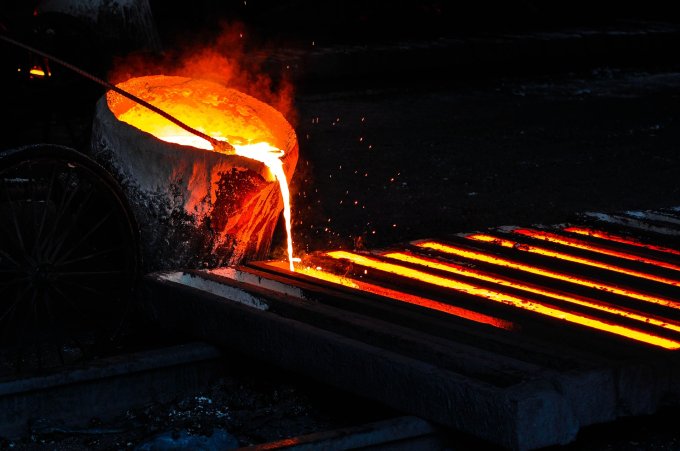- 19 February 2026
Metal refining is a technological process that aims to purify the mineral raw material from admixtures and impurities to obtain pure metal of high quality. It is an important stage in the metallurgical industry, as it allows obtaining metals with the right parameters and properties, which are later used in many areas of life.
The metal refining process can be carried out in different ways, depending on the type of metal and the impurities to be removed. The most commonly used methods are electrolytic, thermal and chemical refining. Each of these techniques has its own advantages and applications in specific cases, allowing to obtain a metal with the desired properties.
The metal refining process consists of several steps to remove impurities and unwanted admixtures from the mineral raw material. In the case of electrolytic refining, the method involves subjecting the metal to electrolysis to separate the pure metal at the electrode. Thermal refining takes advantage of differences in the melting points of different metals to separate them from each other. Chemical refining, on the other hand, involves using chemical reactions to remove admixtures from the metal.
The process of metal refining can have an impact on the environment due to energy consumption, raw material extraction and possible emissions. Therefore, increasing attention is being paid to the development of environmentally friendly technologies for the metal refining process. The use of renewable energy, the optimization of production processes or the recycling and reuse of metallurgical waste are all steps toward sustainable and more environmentally friendly metal production.
Metal refining plays an important role in various industrial sectors. After the refining process, metals are used in the production of construction materials, electronic components, tools or various consumer products. The automotive, electronic, or construction industries are just some of the sectors in which metals after refining have significant applications.
In everyday life we encounter many products that were created thanks to the process of metal refining. We owe it not only to the components of our cars and electronic devices, but also to kitchenware, ornaments or jewelry. Clean and precisely manufactured metals after refining are an integral part of many items we use every day.

Today, technological developments and innovations in metal refining are aimed not only at improving process efficiency, but also at reducing environmental impact. New refining methods, the development of more efficient purification systems or the use of recycling methods are the main research and development directions in this industry.
Metallurgical and industrial experts are expressing positive opinions about metal refining. They point out its key role in the production of high-quality metals, which are essential in many industries. At the same time, they stress the need for further development of refining technologies and processes toward more efficient and environmentally friendly solutions.
The development prospects for metal refining are promising. The industry is constantly evolving towards greener and more efficient production. Investments in research and development of new technologies, as well as growing environmental awareness, are contributing to the emergence of new methods and solutions in the metal refining process.
It is also worth noting the role of education and public awareness of metal refining. Understanding the processes and importance of this industry can encourage efforts to develop this branch, taking into account both technological and environmental considerations.
Metal refining is an extremely important element in the production process that affects people's daily lives and the development of the economy. Understanding metal refining processes and their relevance to various industries allows us to appreciate the role they play in our lives.